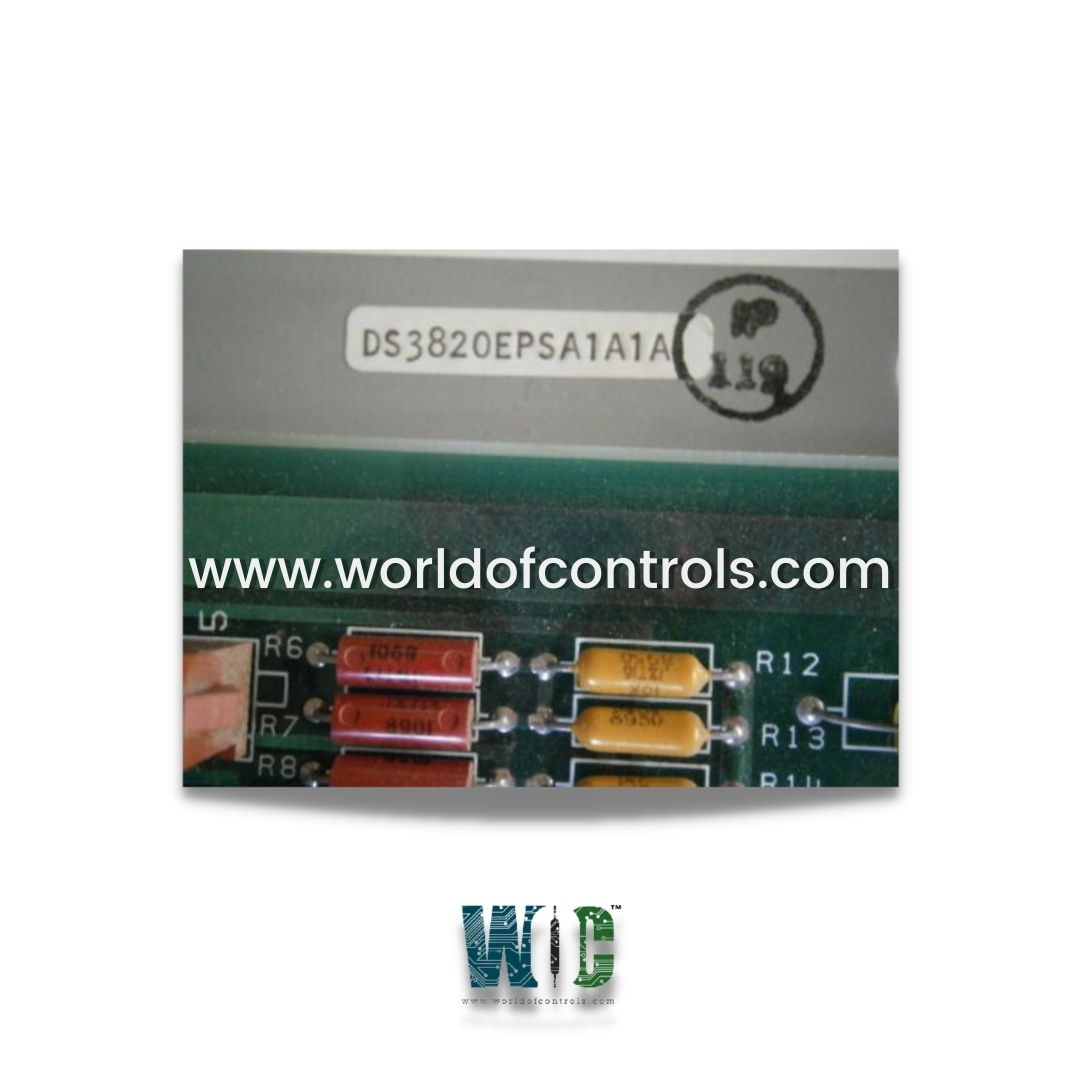
World Of Controls understands the criticality of your requirement and works towards reducing the lead time as much as possible.
DS3820EPSA - High Speed CAN Bus Interface Module is available in stock which ships the same day.
DS3820EPSA - High Speed CAN Bus Interface Module comes in UNUSED as well as REBUILT condition.
To avail our best deals for DS3820EPSA - High Speed CAN Bus Interface Module, contact us and we will get back to you within 24 hours.
Part Number: DS3820EPSA
Manufacturer: General Electric
Series: Mark IV
Function: High Speed CAN Bus Interface Module
Product Type: PCB
Availability: In Stock
Country of Manufacturer: United States (USA)
DS3820EPSA is a High Speed CAN Bus Interface Module developed by GE under Mark IV system. The CAN protocol is a widely used communication standard in the automotive and industrial industries, allowing devices to communicate quickly and reliably over a bus interface. The BIM is responsible for managing the communication between devices on the bus interface using the CAN protocol. It is typically implemented as a microcontroller or a specialized ASIC designed specifically for CAN communication.
It supports both standard and extended frames, allowing for flexible and efficient data transmission. The protocol uses a message-based system, where data is transmitted in packets called messages. The BIM typically includes a CAN controller, which is responsible for managing the transmission and reception of messages on the bus. It also includes a transceiver, which converts the CAN protocol signals into the appropriate physical signals for transmission over the bus interface. A High-Speed CAN Bus Interface Module typically features the following:
World of Controls' experts are always available to help you with your GE Mark IV requirements. Contact us for more information.
What is DS3820EPSA?
It is a High Speed CAN Bus Interface Module under the GE Mark V system.
What is a High-Speed CAN Bus Interface Module?
A High-Speed CAN Bus Interface Module is a device that allows a computer or microcontroller to communicate with a Controller Area Network (CAN) bus at high speeds. CAN bus is a popular protocol used in the automotive and industrial automation industries for communication between devices.
What is the difference between a High-Speed CAN Bus Interface Module and a regular CAN bus interface module?
The main difference is the speed at which they can communicate. High-Speed CAN Bus Interface Modules can transmit and receive data at speeds up to 1 Mbps, while regular CAN bus interface modules are typically limited to speeds of 125 Kbps or 500 Kbps.
What are some applications of a High-Speed CAN Bus Interface Module?
High-Speed CAN Bus Interface Modules are commonly used in automotive and industrial applications for real-time data acquisition, diagnostics, and control. They can also be used in research and development for testing and validation of automotive and industrial systems.